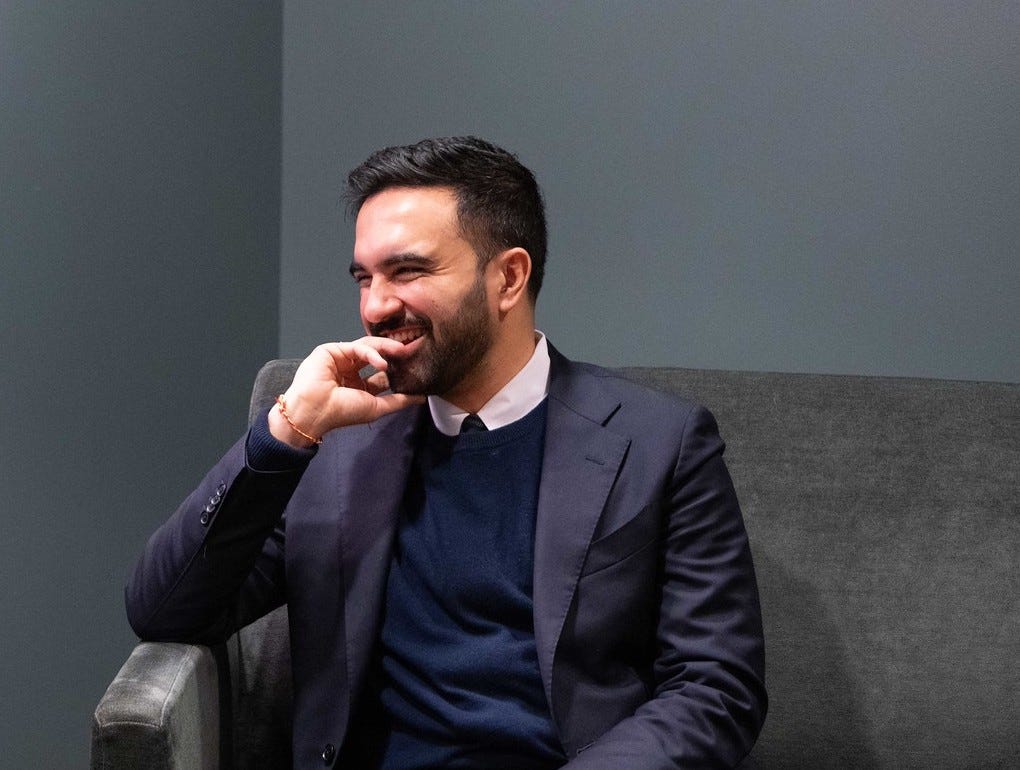Zohran Mamdani’s victory proves it: progressive politics can still triumph
The mayoralty of New York proves the left can win when it focuses on delivering for people.
When Zohran Mamdani won the race to become mayor of New York City this week, it felt bigger than a municipal contest.
A 34-year-old democratic socialist, the son of Ugandan-Indian immigrants, and a figure once dismissed as too radical for mainstream politics, Mamdani’s victory over former governor Andrew Cuomo was a jolt to the sleeping establishment: a sign that progressive politics can still win, even in the heart of a city dominated by money and power.
It shouldn’t necessarily have come as a surprise. Our media ecosystem is heavily tilted to the right, but progressive energy has been quietly building. Voters are bleeding from Labour to the Lib Dems and Greens, frustrated by a government that continues to stick to the centre ground on economics while echoing the right on immigration.
Zack Polanski, the newly appointed leader of the Green party, has become the punky disruptor capturing the airwaves and sending Telegraph columnists running to their keyboards. The Caerphilly by-election, where Plaid Cymru wrested a historic Labour seat, showed that the progressive centre-left still has life and that the country doesn’t belong in the arms of Nigel Farage. A recent poll also found that a majority of centre-left voters were willing to vote tactically to prevent Farage’s party from gaining power, a reminder that the left still holds power even if the establishment ignores them.
“For too long, it felt like the populist right was winning. Mamdani proves it is not.”
Across the pond, it’s hard to understate the significance of Mamdani’s win. He came from nowhere, proving the enduring power of grassroots politics. In Queens, where he first made his name as a state assembly member, he became known for showing up – not just in the halls of power, but on picket lines and street corners. He joined hunger strikes with taxi drivers, backed striking workers, and embedded himself in the daily struggles of working people. That intimacy gave his ideas authenticity and the ability to pitch transformative policy without sounding naïve. Perhaps most critically, it’s given him the ability to go toe-to-toe with the likes of Donald Trump, the petulant millionaire who claims to speak for the everyman. For too long, it felt like the populist right was winning. Mamdani proves it is not.
Labour should pay attention. Mamdani’s campaign, much like Plaid Cymru’s, was built around the cost of living. Rent freezes, fare-free buses, city-run grocery stores, a $30 minimum wage by 2030 – simple, tangible promises that show government can make life easier. He didn’t just offer empathy, but a plan, step by step, grounded in logic and fairness. Unlike too many on the left, he married ambition with credibility and action.
Britain’s voters, like New York’s, are exhausted by stagnating wages, broken public services, and a political class that treats delivery as a nice-to-have rather than the moral function of government. Starmer may not share Mamdani’s politics (or, lets be frank, his charisma), but the two face the same challenge of making the machinery of state feel relevant again to voters beaten down by broken promises. Mamdani shows the answer isn’t managerialism, it’s matching frustration with solutions bold enough to quell it.
That doesn’t mean copying policies wholesale. New York has unique dynamics: rent control, powerful unions, a sprawling municipal bureaucracy. But the Mamdani effect runs deeper, he convinced voters that politicians can still change things.
The final lesson for this government lies in how Mamdani expanded his coalition without losing his edge. Young renters, minoritised communities, precarious workers, and the politically alienated were all brought into the fold. In Britain, Labour risks courting older, centre-right voters while losing the young and disillusioned. Re-engaging them requires politics that excites, not just manages; that all-important vision of how life could genuinely improve.
New York is, of course, not London and Mamdani is, of course, not Starmer. But both face electorates battered by inequality, crumbling infrastructure, and a sense that politics as it is does not work. Mamdani offered a way out: optimism, purpose, and tangible action. Labour must now study how he did it; not to copy, but to reconnect with its roots and the belief that government, done right, can still change lives.
In New York, radicalism just won an election. In Britain, it could yet define a government.■
About the author: Zoë Grünewald is Westminster Editor at The Lead and a freelance political journalist and broadcaster. Zoë then worked as a policy and politics reporter at the New Statesman, before joining the Independent as a political correspondent. When not writing about politics and policy, she is a regular commentator on TV and radio and a panellist on the Oh God What Now podcast.
If you’ve enjoyed reading Zoë’s latest analysis, subscribe to The Lead or share this article so more people can discover our work.




